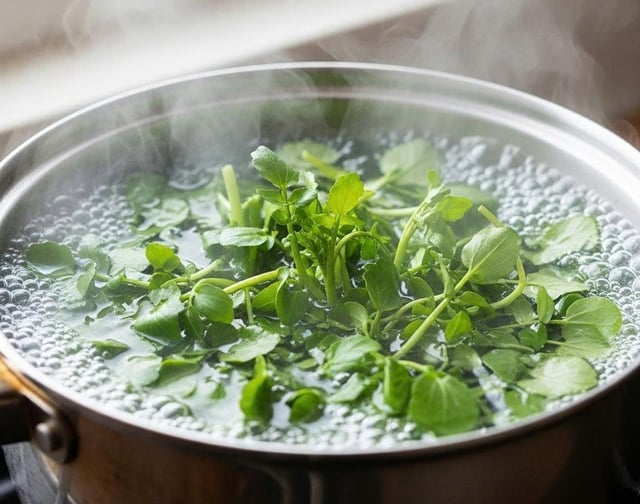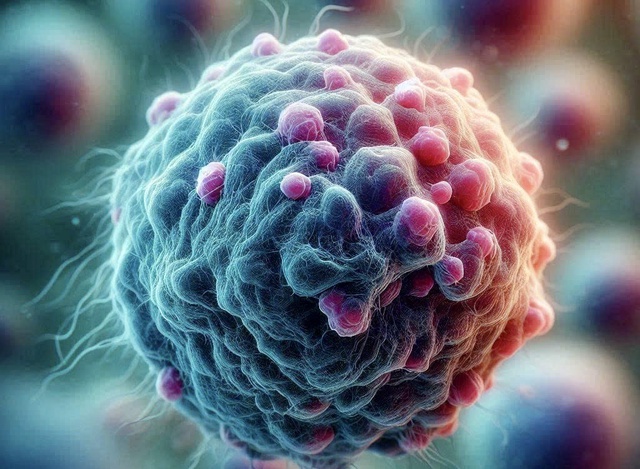In particular, watercress is also used in traditional medicine to treat coughs, asthma, high blood pressure and diabetes.
Dr. Megan Nunn, a community pharmacist in Tennessee (USA), shares the impressive benefits of watercress.

Watercress is rich in nutrients, including many vitamins and minerals, especially vitamin K.
Photo: AI
Health benefits of watercress
Watercress is rich in nutrients, including many vitamins and minerals, especially vitamin K, and antioxidants such as beta-carotene and alpha-tocopherol. Research shows that this vegetable can help prevent cancer, lower cholesterol levels, and reduce the risk of diabetes and heart disease.
May reduce the risk of cancer. Studies have shown that the compound sulforaphane in watercress has anti-cancer effects. One laboratory study found that sulforaphane may slow the growth of cancer cells, according to Verywell Health.
Lower cholesterol. Research has found that taking watercress extract for 5 weeks significantly reduced bad cholesterol.
Improve heart health. You may be surprised to learn that the nutrients in watercress can also protect your heart. This vegetable can improve heart health because it contains calcium, potassium, and magnesium - which play an important role in maintaining healthy blood pressure.
Plus, it’s a natural source of nitrates, which convert to nitric oxide in the body. Research has shown that foods containing nitrates, like watercress, have many benefits for blood vessels, including:
- Lower blood pressure.
- Prevents platelet buildup (which can cause blood clots leading to heart attacks and strokes).
- Protect or improve blood vessel lining (important for blood pressure and blood flow).

Studies have shown that the compound sulforaphane in watercress has anti-cancer effects.
Photo: AI
Support eye health. Watercress is a rich source of the carotenoids lutein and zeaxanthin. A 2022 study published in the scientific journal Nutrients found that these antioxidants may reduce the risk of age-related macular degeneration.
Watercress also contains vitamin C. A 2022 study found that a diet rich in vitamin C can reduce the risk of developing cataracts by 33%.
Improve bone health. Watercress provides calcium, potassium, magnesium and vitamin K - nutrients needed for healthy bones.
In particular, the amount of vitamin K in watercress is extremely high. Consuming enough vitamin K can increase bone density and reduce the risk of fractures.
Watercress can be prepared in many ways, from soup, stir-fry, steam to salad and smoothie, according to Verywell Health.
Source: https://thanhnien.vn/mon-canh-ngon-mieng-3-trong-1-giam-cholesterol-tot-cho-tim-ngua-ung-thu-185250620114316408.htm































![[Photo] Nghe An: Provincial Road 543D seriously eroded due to floods](https://vphoto.vietnam.vn/thumb/1200x675/vietnam/resource/IMAGE/2025/8/5/5759d3837c26428799f6d929fa274493)

































































Comment (0)